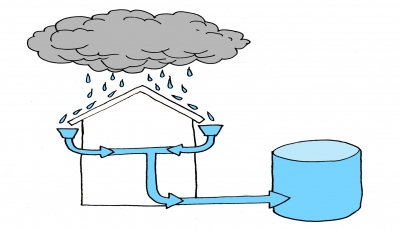Fostering Resource Effectiveness and Environmental Protection Via Fluid Waste Elimination Programs
In the realm of environmental stewardship, the administration of liquid waste stands as a critical juncture where resource effectiveness and environmental security assemble. With a lens of proactive engagement and tactical foresight, the landscape of liquid waste administration unveils a tapestry of challenges and possibilities that bid us to check out the course towards a greener and more sustainable future.
Significance of Liquid Waste Elimination
The relevance of liquid waste removal depends on its vital function in protecting ecological health and wellness and securing public wellness. Liquid waste, if not properly taken care of, can pose serious threats to communities, water sources, and human wellness. Via effective removal processes, harmful substances such as chemicals, virus, and toxins are avoided from polluting the environment and creating damaging effects.
Correct liquid waste removal also aids in stopping the spread of diseases and lowering the capacity for groundwater contamination. By safely getting rid of liquid waste, the threat of waterborne diseases and pollution-related health problems is significantly decreased - Reclaim Waste. In addition, efficient elimination practices add to maintaining the general cleanliness and visual appeals of communities, thus boosting the high quality of life for homeowners
Additionally, fluid waste elimination plays a crucial duty in supporting lasting growth and ensuring compliance with ecological policies. By sticking to proper waste administration markets, methods and businesses can minimize their ecological impact and show corporate responsibility. Inevitably, purchasing durable fluid waste elimination programs is important for promoting ecological stewardship and cultivating a much healthier, more secure future for all.

Advantages of Effective Disposal
Reliable disposal of liquid waste not just safeguards environmental wellness and public health yet additionally generates numerous benefits that expand past immediate control actions. With processes like reusing and energy recovery, beneficial sources can be removed from liquid waste, advertising sustainability and lowering the stress on raw materials. Generally, the benefits of efficient fluid waste disposal are diverse, incorporating ecological security, resource performance, and economic benefits.
Technologies for Waste Therapy
Making use of sophisticated modern technologies for waste treatment plays a crucial function in ensuring the efficient monitoring and risk-free disposal of fluid waste. One of the essential modern technologies employed in liquid waste therapy is biological treatment.
Advanced oxidation procedures (AOPs) have gotten popularity for their capability to weaken persistent organic contaminants in fluid waste via the generation of highly reactive hydroxyl radicals. Membrane layer technologies like reverse osmosis and ultrafiltration are efficient for dividing impurities from liquid waste streams. Furthermore, thermal therapy methods such as incineration can be utilized for the total devastation of hazardous elements in liquid waste. Generally, the assimilation of diverse treatment technologies ensures ecologically friendly and comprehensive management of liquid waste.
Role of Regulations and Compliance
In the realm of fluid waste monitoring, adherence to governing structures and conformity requirements is paramount for safeguarding ecological health and wellness and sustainability. Laws play a vital duty in controling the appropriate handling, treatment, and disposal of liquid waste to avoid injury this content to ecosystems and human wellness. By developing clear guidelines and requirements, governing bodies make certain that services and individuals associated with fluid imp source waste monitoring operate in an eco liable way.
Compliance with these regulations is not just a legal requirement yet likewise an honest responsibility to protect the setting for present and future generations. It entails executing best techniques in waste collection, disposal, transport, and therapy to lessen environmental influence and promote source efficiency. Non-compliance can result in penalties, lawsuit, and reputational damage for companies, highlighting the importance of promoting regulative criteria.

Future Patterns in Waste Management

One more crucial fad in waste administration is the adoption of advanced data analytics and expert system to maximize waste collection courses, enhance sorting processes, and boost general operational effectiveness. These innovations enable waste monitoring business to make data-driven decisions, bring about cost savings and ecological advantages.
Additionally, there is a growing focus on the development of decentralized waste monitoring systems, such as onsite treatment centers and mobile waste processing units. These systems provide flexibility and scalability, enabling much more reliable waste handling in diverse settings.
Final Thought
Finally, cultivating source effectiveness and environmental management with fluid waste removal programs is crucial for lasting development. Reliable disposal techniques, progressed technologies for waste therapy, and strict guidelines play key functions in decreasing environmental influence. Looking ahead, constant innovation and enhancement in waste monitoring practices will be crucial for addressing the expanding obstacles of liquid waste disposal.
In the world of ecological stewardship, the management of liquid waste stands as a critical juncture where source performance and environmental protection assemble (Industrial waste water treatment).Making use of advanced innovations for waste treatment plays a crucial role in guaranteeing the efficient monitoring and secure disposal of fluid waste.In the realm of liquid waste management, adherence to governing structures and conformity criteria is paramount for safeguarding environmental health and sustainability.In final thought, promoting source effectiveness and ecological security with liquid waste removal programs is vital for lasting advancement. Looking ahead, constant advancement and enhancement in waste administration methods will be vital for dealing with the growing obstacles of liquid waste disposal